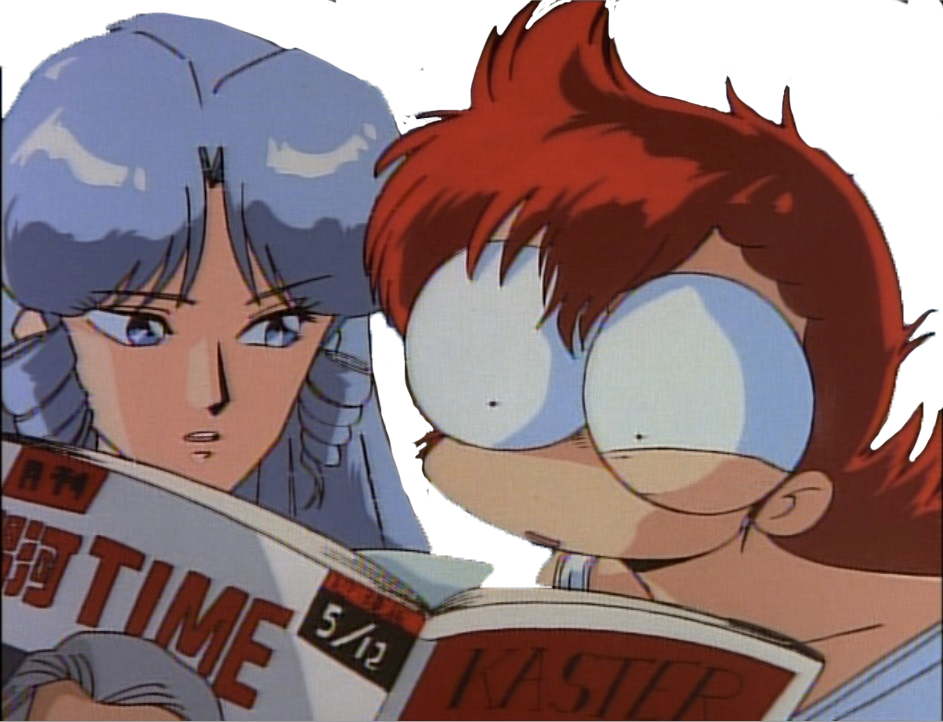- cross-posted to:
- chat
Music major, checking in! I'm educated in composing, among other music related things. Such as multi-instrumentalist, singer, producer, studio musician, touring/live player my actual band and as a backing player, and have taught a lot.
And I don't mean producer as in I'm really good with garageband. I worked in a physical studio, sit behind the board and twist knobs kinda stuff. Basically running/mediating recording sessions.
This is my time to fucking legitimately flex. What's poppin'?
:cool-dad:
Restrictions. "Write a song" is the worst and most frustrating sentence I've ever heard. Write me a funeral dirge in C#minor set to a random Latin mass. Write me a punchy brit-pop tune and keep it under 3 minutes. You know that one song? Write me a song like that. Narrowing down things is the easiest way to get started. Pick a key. Pick a progression. Pick a sound you want to imitate. Keep it simple. There's plenty of time to make it more complex. Also- JUST START!
Another music major here. Other folks suggesting learning some theory is good for sure, but that's quite a time investment. I'd recommend trusting your ear more than anything. If you have a little piano, just try making chords at random until it starts sounding good. I'm not a pianist and this is how I do my comps. Granted, I can analyze it afterwards, but that only helps me explain the comp to other musicians, it still sounds just as good without the theory knowledge. In terms of producing. Download a DAW (I used audacity until I got ableton) and start looking up tutorials. I can guarantee you there's a tutorial out there for any question you have about any DAW. Your productions and comps won't sound good at first, but don't be discouraged, that's a part of the process (also we tend to be more subjectively critical of our own shit). Good luck! And dm me if you want help or someone else to compose some shit for ya.
Get or trial Reaper as your daw if you don't already have one (I found Reaper very user friendly and intuitive however any will work) and obtain some vsti's of your choosing, I started with ufo ze.
If you like synthwork then here's a video I used to try and understand them a bit more, it's old and long so there's probably better out there: https://www.youtube.com/watch?v=atvtBE6t48M
If not most synth vsti's have presets and you could always obtain orchestra vsti's, etc so you don't have to fiddle with making a sound.
http://openmusictheory.com/contents.html is a good source I go back to and there's a lot on youtube. After that it depends on how far you want to go.
For starting you just need to understand scales, chords, and progressions. All the white keys on a (virtual) keyboard are apart of C major. Most midi editors should have a piano roll appearance that displays the keys on the left making it very easy to plot a specific note where you want it. Scales are just a series of notes you use and from which chords are created from. For now, just think of them as having 7 unique notes. The C major scale starts at C and ends with B. Within that scale are other scales, or modes, that you can use instead, like using A minor just means you start at A and end at G.
Chords start as a triad which just means three notes -the root note or 1, followed by the third, and then the fifth ( 1, 3, 5) - relative to your root. So a C chord in the scale C major (no black keys, which are sharps/flats; if we are looking for the chords in a scale we will only use the notes of that scale) would be C, which is the root; then its 3rd would be the third note counting from C ( C to D then E, skip the black keys since they are not in C major) so E; and then the fifth would be five from C, so G. So a C major chord would be C, E, G.
The next chord would be D, F, A, which is a D minor chord. The difference between a minor and Major chord is how many intervals are between the root and its third. For now, just know that in a Major scale, the chords created from the first, fourth, and fifth notes are Major (so in C major's case it'd be C major, F major, and G major). The chords created from the second, third, and sixth notes are minor (D minor, E minor, and A minor). The chord created from the seventh note is unique and generally called a diminished a chord: it is B, D, and F. It is called diminished instead of minor because it has a flatted fifth however you probably won't need to worry about that for now.
For chord progressions learning the chord substitution groupings helped me a lot: https://lotusmusic.com/lm_chordsub.html - It's halfway down the page, the little chart with Tonic, subdominant, and dominant on the left. Generally, a chord progression starts with whatever you decide the root chord is, then proceeds to go to the subdominant category (either the chord built off of the second or fourth note), and finally ends in the dominant category (the fifth and seventh chord). Don't view this as an absolute, concrete, requirement however, it's just a very good guideline. One of the most common jazz progressions is 2 - 5 - 1 and probably the most popular pop progression is 1 - 4 - 5.
The chords are grouped into categories that fill similar roles and allow you swap them out without changing the feel of the song too much, which makes sense if you look at the notes they are composed of. In the last link, there is another picture below that chart that shows it pretty well but they are using seventh chords which just means the chord is composed of four notes, with the last note being the note just before the root. I was going to show it here with just triads but I couldn't get it to format correctly. You could try this for yourself by making any progression that ends with the chord built off the fifth note, then replace the fifth chord with the chord built off the seventh note. Now, replace it with the chord built off the fourth note and you should hear the difference, especially if you have them playing back to back. The first two should have the same sort of strong-resolving sound and the third should sound a bit different.
I'm not a professional.
General advice:
- If you need a melody quick just use the black keys. You know the PS2 start up sound? That's literally all the black keys smashed at the same time. But don't be afraid to venture out sometimes. The occasional out-of-key note is good, actually.
- Repetition is your friend. Not just because ez but its how you make all music. The more advance stuff is secretly just repetition of more things.
- Make your track feel like its progressing by adding one element in, like, the second half. Can just be an extra note tbh.
- You don't need a lot going on. Simple is cool and good. More notes is more ways to fuck up and more mess to clean.
- When you want to the track to feel like its ending just, remove some instruments from the last section.
- The most important note is the last one (for each section). Make that one good.
Math advice:
- Everything is made up of 2's. Chords are root note (1), middle (3), Dominant (5). You can just keep adding twos if you want lmao.
- Sections, measures, and bars, all made of 2's. Sometimes two 2's. Every section should be played twice, except the last one.
Lastly, everything I said can be broken. But each one you break is a chance for a mess.
not op but someone who's deeply interested in your craft. I'm an intermediate level guitarist with absolutely no experience in recording anything. Is there any beginner-level resources you typically point people to? I'm interested in recording in the future (after I perfect a few more skills), but I have no idea where to start.
recording is a funky craft, and honestly, you're going to get much more mileage by practising and training your ears than by spending time studying it. yeah for sure read a book or two or run through youtube tutorials to get the basics, but it's best to get your hands on a cheap mic and start playing around.
the biggest biggest thing that goes into it is the performance. seriously. record a better take and it'll mix better. past that though, the biggest thing is your mic positioning and while you will want to google some basic strategies to get started, your ears won't be able to hear the differences quite as well until you've put some time in. it's like cooking; if you're new to it and you taste your soup, you can maybe tell something's off, but it's harder to know what it might be missing. after some practice you can taste which spice is missing, and you can hear if your mic needs to be closer, further, angled differently, or pointing at a different part of the instrument. amps are very different beasts (and imo easier) than acoustic guitars.
if you're just starting out putting your demos onto your computer, the software doesn't matter all that much. even audacity will just allow you to do everything i've said. if you're talking about mixing or producing your own full song, that's a bit of a different skill and then you're going to need to learn how to use a DAW. garageband is good for beginners, pro tools is industry standard from what i know, and ableton is known for its performance and looping capabilities. i use ardour because i'm a free software nerd. there's a lot to understand here so you're going to need to put some time into learning how to use it or just brute force playing around until you come up with something cool.
i do encourage you to play around. i'm a longtime player of a few instruments but dancing with digital audio is just so much fun. i am not a professional though.
To be honest, look up your favorite tunes, favorite bands and see if there's any interesting production info. Jimmy Page was a fucking studio engineering GENIUS. Sir George Martin is single-handedly responsible for The Beatles. Billy Corgan has really unique recording and tracking methods. Emulate your heroes. Pick up tips and gear info from ever place you can find it. Get familiar with certain recording idioms. Do worry about the nuts and bolts of it all. Immerse yourself in tangential information and it'll all just make sense. Recording is about the things that make sense to you. Sorry this is vague, I don't want to just say "check out youtube". There's a lot of technical bullshit that doesn't matter if you don't approach it with the right attitude.
I have a Tascam DR 05 floor mic. It records digitally and picks things up great. I've recorded basement crust shows with it and even that sounded decent (by my low standards). It's about $200 and works great.
Check out 12Tone on YouTube. He breaks down pop songs from a music theory perspective. Then just google the words you don't understand.
https://www.teoria.com/en/tutorials/ another great website to go with musictheory.net
Just play the black keys (for real tho).
If you are somewhat serious about this I'd recommend something like the Ableton Push (the old version is really cheap, got mine for like $150). The grid keyboard is great if yr not a piano player and you can choose different scales to play in. Also for me it made ableton way more fun and intuitive.
***Also, I have a code for a free version of ableton lite if you are interested, just sayin
I don't mean to be obtuse and maybe you don't want to hear this, but running into problems, asking people for help, and learning something new is part of the appeal of undertaking projects (for me). There's no reason getting to know more about music theory has to be a drag, ya'know?
Here's a really good site for game music specifically. They let you filter by genre and what licenses the game has. There's a lot of options for freeware in particular.
Also, Kevin MacLeod is the classic go-to, he's made a bunch of high quality free to use music that's been in a lot of games and videos over the years.





